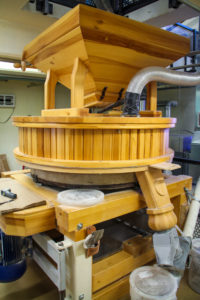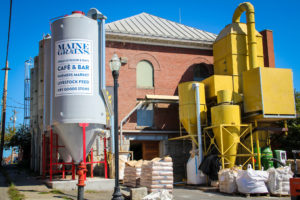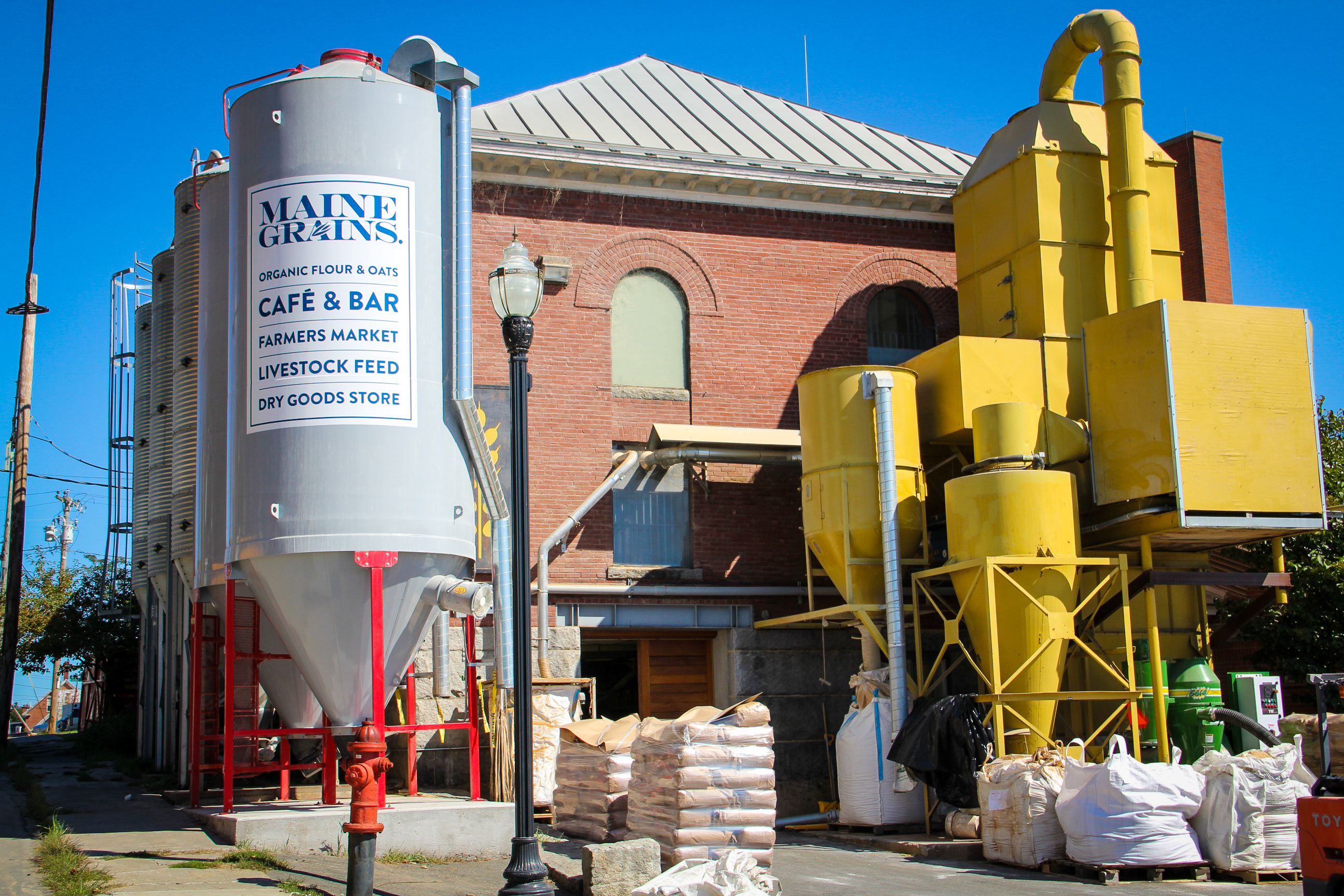May 19, 2017
Maine Grains

Amber Lambke never imagined that she would be a key visionary leader behind a small town’s economic revitalization, and eventually the CEO and President of a large manufacturing facility. As a Skowhegan resident, Amber found herself actively volunteering with downtown revitalization projects. In 2007 she developed and hosted the first annual Kneading Conference which brought together farmers, millers, bakers, and other artisans of the like. The conference established a conversation around revitalizing a grain economy in Maine. When trying to source local ingredients, they all agreed that grains were difficult to find, and local milling infrastructure had long been abandoned.
Central Maine’s rich history of growing grain demonstrated the potential for a milling operation that had been untapped for over a century. Amber spent years traveling and learning about the grain industry and realized that organic grain production at a regional scale was different from anything that was happening. Niche mills that were set up on farms had fragile infrastructure, and models of Midwestern operations were of mass scale; there was nothing in-between.

Amber stepped in once again, spurred on by a passion for her community. In 2012, she identified a highly visible old Victorian jailhouse in historic downtown Skowhegan in which to establish Maine Grains. The tall structure had the height necessary for gravity-feed milling, and already had a fully-functional commercial kitchen.
Business advising at the onset was made possible through the SBDC and CEI. Amber worked closely with Janet Roderick, CEI Business Advisor, with early stage business planning, developing a narrative, crunching numbers, and identifying and writing grants. More recently, a seed equity investment from CEI allowed Maine Grains to expand local operations by purchasing new equipment from Germany which dehulls and processes rolled oats. The new machines help with efficiency and output, as rolled oats comprise 40% of the company’s production.
With the investments Maine Grains received, including CEI’s seed equity investment, 11 new jobs have been created. Positions including six milling staff, a bookkeeper, salespeople, a customer service representative, and an operations manager are in the lot. All jobs are filled by local residents and with milling expertise such a rare commodity, Maine Grains integrates on-the-job-training for all milling jobs.
“Having a growing startup business in need of more personnel support has allowed us to identify key people in the community,” said Amber.

The renovated facility is MOFGA organic-certified, and functions as a zero-waste operation. Maine Grains processes grains naturally, using no water, and ultimately creating products and byproducts that are a valuable local resource. The grains milled at the facility are sold widely among purveyors in brewing and natural food industries, offering a nutritious, flavorful, and locally milled product. Byproducts are sold back to farmers to be used as mulch, composting, and food for animals.
After four years of operations, the company currently works with 36 farmers, a number which has doubled every year, and sources 90% of its grains from farms in Maine, with preference given to non-GMO, organic grains. Maine Grains also partners with the UMaine Cooperative Extension to facilitate grain education among farmers.
Maine Grains, located in downtown Skowhegan, is now home to other businesses and is a prime example of the town’s growth and community revitalization efforts. The large parking lot hosts a local farmers market, and commercial space in the mill is rented to tenants including a local foods café, a yarn shop, and a radio station. The past decade has been a catalytic phase of revitalization for Skowhegan, seeing the talent, energy, and passion of the local community emerge as a transformative force.



